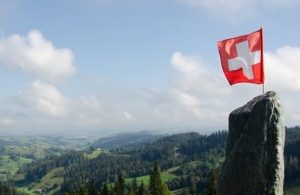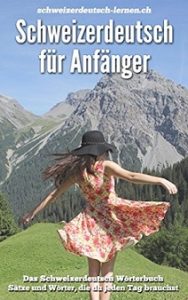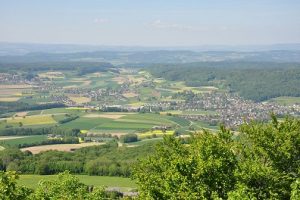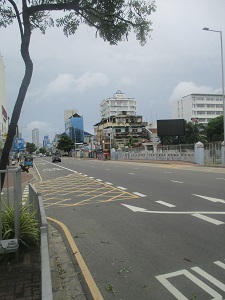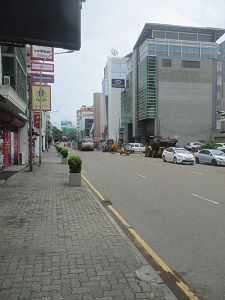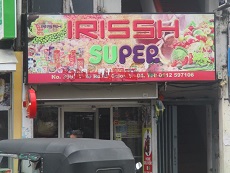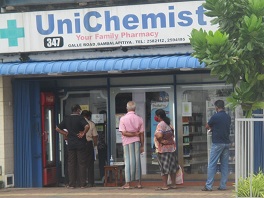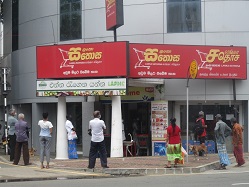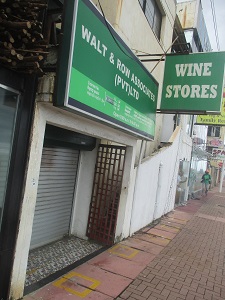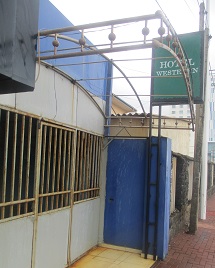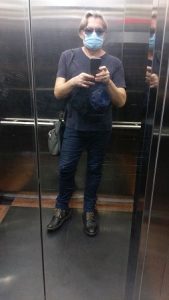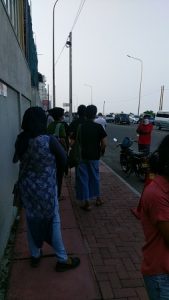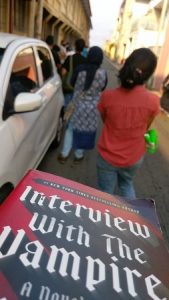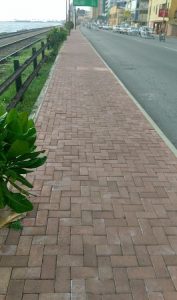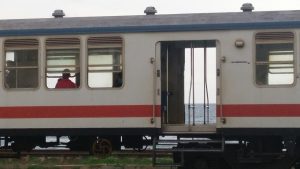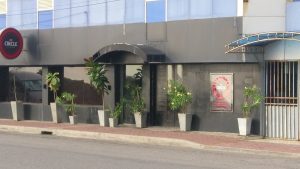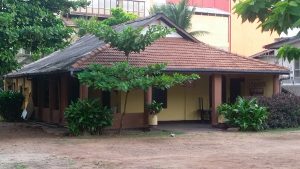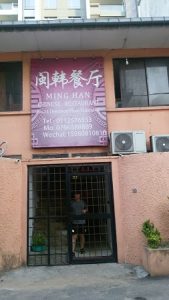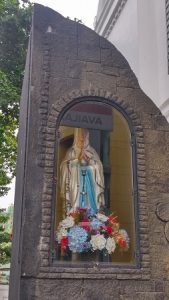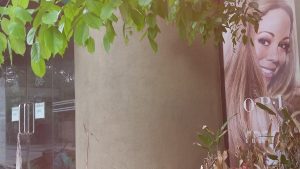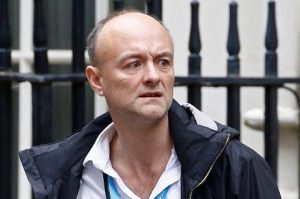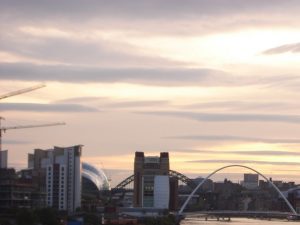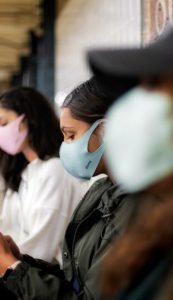
From unsplash.com / © Brian Asare
Earlier this month Singapore’s Ministry of Health announced that it no longer perceived Covid-19 as a threat and the city-state’s ‘disease-response level’ would be lowered from ‘green’ to ‘yellow’. For those people visiting Singapore, this means they no longer have to buy Covid-19 travel insurance, and visitors not fully vaccinated no longer have to show test results to prove their uninfected status. It also looks like Singapore’s Trace Together app – something I had to constantly use when I arrived here a year ago, and without which I would probably have spent my first few months living on the streets – will be discontinued. The most noticeable relaxation of all, however, is that, since February 13th, face-masks are no longer compulsory on Singapore’s public transport system. *
Thus, riding Singapore’s buses – as I normally do twice a day, to get to and from work – has been a strange experience during the past week. I’ve had to mentally adjust to seeing the entirety of other passengers’ faces. Not that all of them aren’t wearing masks now, of course. A lot of passengers still are, mostly, I have to say, the Singaporeans ones. It’s largely passengers from the country’s sizeable Western community who are suddenly, brazenly flaunting their facial features for the first time in a couple of years.
Perhaps I’m just odd, but I don’t actually mind people wearing masks around me. The masks make me take more notice of their eyes, the windows of the soul, and create a general air of mystery. “What marvellously alluring eyes that person has,” I might say to myself. “But I wonder what lurks lower down, concealed by their mask? Perchance a mouthful of Shane McGowan-style dental work?” Such are the thoughts I entertain as I make the 45-minute bus journey to and from my workplace in central Singapore. “Could that masked person be a gorgeous Singaporean equivalent of Selina Kyle, aka Catwoman from Batman? Or do they really resemble Lon Chaney Sr, from The Phantom of the Opera (1925)?” And in fact, I’ve seen a number of articles in the past few years claiming that a Covid-19 mask adds to a person’s aura of attractiveness.
It’s no surprise that an East Asian country like Singapore has stuck with its mask mandate for so long (way after Western ones have abandoned them), and its population has happily complied with it. Wearing a surgical mask when you’re unwell with something that might be contagious has never been a big deal in this part of the world. It was one of the first things I noticed when I started working in Asia, in Japan back in 1989 – folk suffering from a cold or a dose of the flu would mask up to avoid passing something on to their fellow citizens. Indeed, the surgical mask is so engrained on Japanese culture that there’s even a well-known figure of urban folklore, Kuchisake Onna, whose gimmick is that she wears one. Since Kuchisake Onna is a homicidal spirit who takes the form of a seemingly beautiful woman, that mask has a macabre function. It conceals a grotesquely widened mouth, its ends cut open as far as the ears.
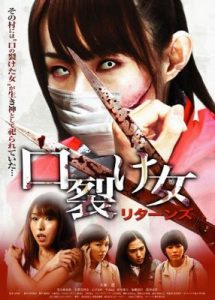
© JollyRoger
Inevitably, the implementation of measures against Covid-19 was, in the West at least, immediately incorporated into the culture wars that these days rage between the right and the left in just about every area of politics and society. The sort of people who rant and rave against woke universities, LGBT rights, asylum seekers, critical race theory, restrictions on gun ownership, taking action against climate change and, in the latest manifestation of right-wing insanity, the so-called ’15-minute city’, have spent the last three years rupturing their hernias about mask mandates, lockdown orders and Covid-19 vaccinations. In the USA, millions of gun-toting, Trump-loving, QAnon-believing macho-men pooped their pants in rage when it was suggested that they don a small piece of cloth over their mouths and nostrils to prevent them getting a virus and, equally importantly, prevent them possibly passing it on to their fellow human beings. The very thought of such a thing was a violation of their rights and ’freeee-dum’, apparently.
The UK was also beset with Covid-19-induced whinging, most notably at alleged news station – though these days it’s more a drop-in centre for conspiracy-theory nutjobs – GB News. Much of it emanated from GB News pundit and supposed archaeologist Neil Oliver, whose schtick is to stare ashen-faced into the camera for six, seven, eight minutes or more and deliver a doom-laden monologue of right-wing paranoia, dog-whistles, unsubstantiated claims and windy, overwrought rhetoric that his hard-of-thinking viewers probably think is Shakespearean. He’s spent much of the pandemic lamenting about anti-Covid-19 measures and how, say, they’ve deprived children of a vital, communal story-telling tradition that’d hitherto existed unbroken since tribal campfires on the far side of the Ice Age. Or some drivel like that.
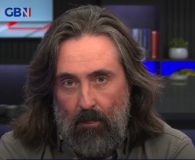
© GB News / From indy100.com
Oliver’s nadir came in 2021 when he declared, “If your freedom means that I might catch Covid from you, then so be it. If my freedom means that you might catch Covid from me, then so be it.” And presumably, if the person who caught it from him was a highly-at-risk octogenarian or person with serious underlying health issues who didn’t want to catch Covid-19 from anybody… Well, tough shit. At least they’d die of the virus with their freedom intact, which was the important thing.
Then, swooping off into realms of total doolally-ness, Oliver likened the Covid-sceptic minority in Britain, himself included presumably, to the pilots who flew Spitfires and Hurricanes against the Luftwaffe during the Battle of Britain: “They risked everything for freedom.” Forgive me if I’m wrong, but didn’t the entire population of Britain during World War II surrender a whole bunch of their freedoms whilst trying to unite against, and overcome, an external threat? I can’t imagine Oliver lasting long in London in 1940 if he’d insisted on having his houselights blazing every night because doing so was in the name of ‘freedom’. Yeah, leave my rights alone, Mr Churchill!
Anyway, for the foreseeable future, I’ll continue to wear a face-mask while I use Singapore’s public transport system. I’ve had Covid but my partner hasn’t. Though she’s fully vaxed and boostered up, she probably hasn’t developed the level of immunity to it that I have, and I’d hate to bring the thing home one day and pass it onto her. Also, I’m not convinced we’re out of the woods yet with Covid. I’m sure it’s possible that future, nasty variants will appear and wreak more havoc. And thirdly, I’ll keep wearing my mask because it’s the sort of gesture that Neil Oliver would wholly despise.
And if it’s despised by him, it must be the right thing to do.
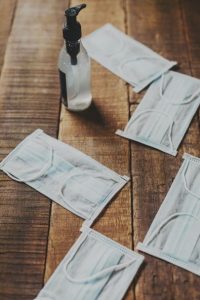
From unsplash.com / © Anshu A
* Face masks still have to be worn, though, in Singapore’s hospitals.

